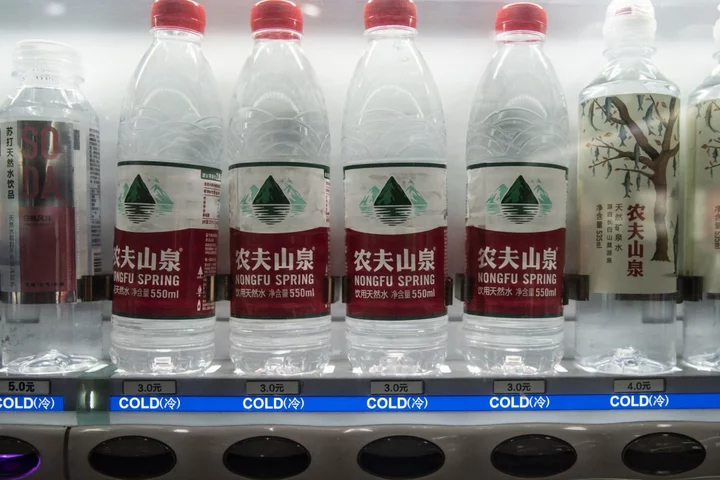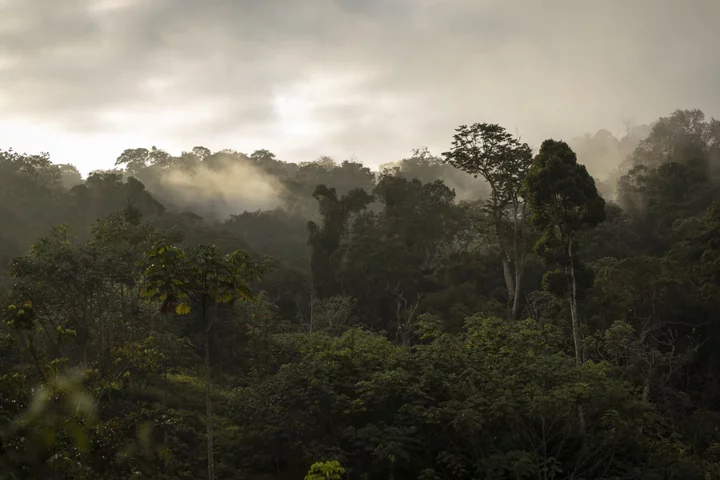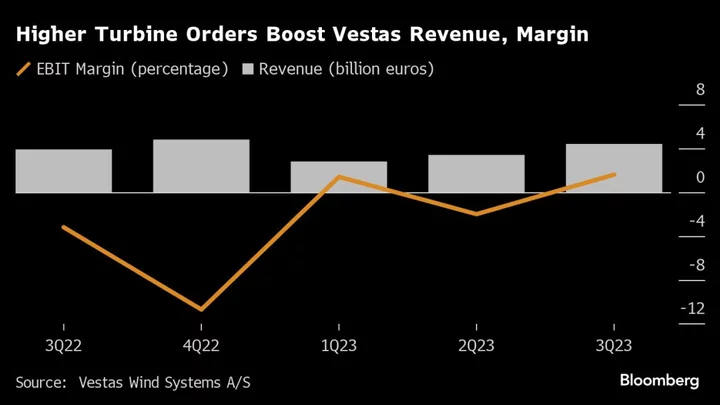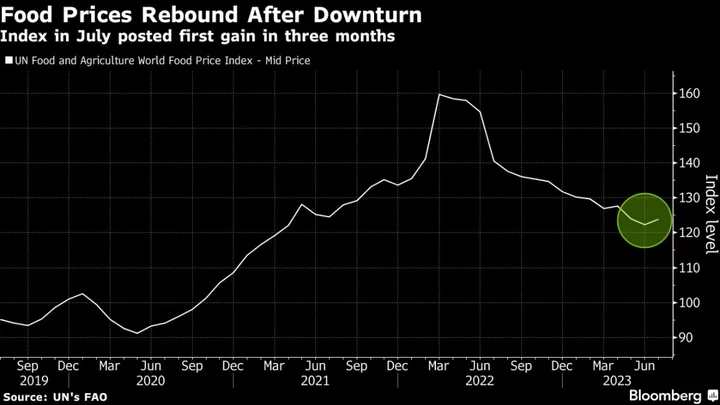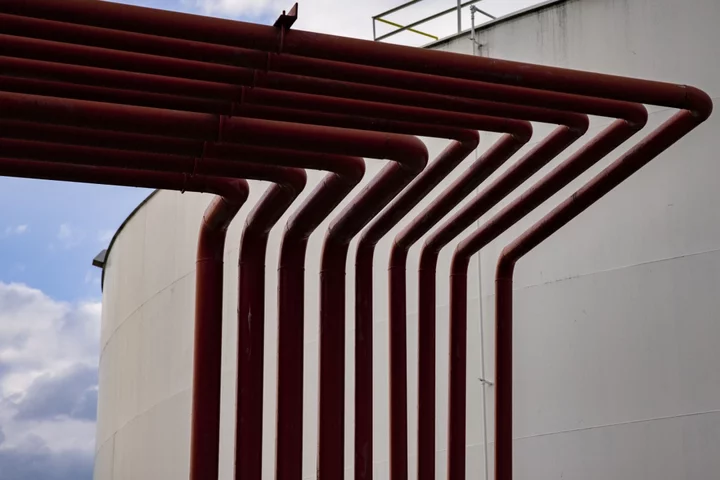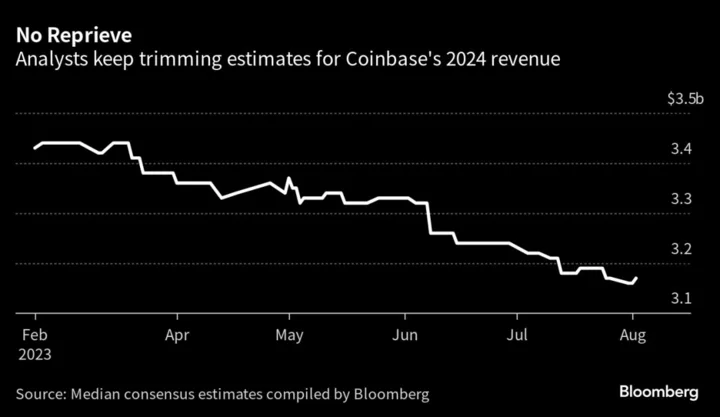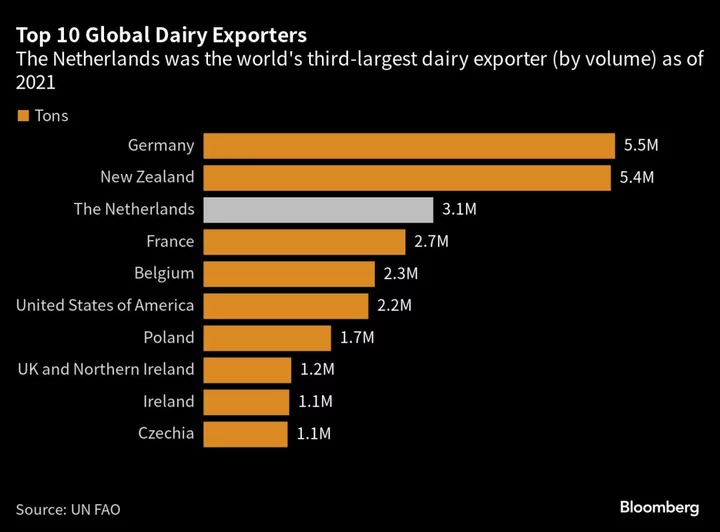(Bloomberg) --
To measure all the ways humans move our dearest commodity around the planet, researchers devised two categories of water. Physical water pools in reservoirs and comes out of the faucet. It’s wet. Virtual water, on the other hand, is the invisible history of all the H2O used to make stuff: tomatoes, solar panels, wood and almost everything else. Not necessarily wet.
Global average temperatures spiked by 1.8C in September; it was a shock to scientists. The atmosphere sponges up 7% more water vapor for every additional degree Celsius. That’s a kind of virtual water, in a way — impossible to see and easy to forget. Except when it becomes a very physical flood raging through the streets.
As a matter of economics, water is mostly virtual. The physical liquid is only 0.0002% of the global trade. That means the real economics of water is mostly hidden, just like the climate consequences. Until they’re not.
The drinking water for people in greater Dakar can be far more lucrative in virtual form as alfalfa. Feed it to livestock far from West Africa, and it can be turned it into beef — and profits for investors. China’s richest person doesn’t sell software or electric vehicles; he runs a bottled water empire that’s been busy privatizing a shared natural resource. Banks, pension funds and insurers are figuring out ways to cash in on California’s scarce water supply. In Arizona, meanwhile, some suburbs are now paying investors for what comes out of the faucet.
In this warming world, controlling water matters in new ways. It’s both a threat and an asset.
Welcome to the ninth issue of Bloomberg Green’s magazine.
Stories from the latest issue have been rolling out for the past few weeks, and everything we’ve published is now available on this collection page. The only magazine focused on climate and the energy transition is sent to our all-access subscribers, so sign up today to receive a print edition along with full digital access to Bloomberg Green. Here are some of the highlights so far…
-
Climate change is driving a global water trade you can’t see. More extreme weather is reshaping the availability of water, a commodity embedded in almost every product bought and sold in international markets.
-
This year’s extreme heat unleashed rain like never before. What’s likely to be the hottest year on record brought never-before-seen rain to five continents, killing thousands of people and causing millions of dollars in economic losses.
-
US airlines haven’t figured out sustainable jet fuel and, despite loud promises, now lag far behind their European counterparts in implementing this climate fix.
-
Climate change threatens 400-year-old Jamestown and its buried secrets. Archaeologists are racing to study and save the remains of North America’s first permanent English colony from rising seas and flooding.
-
To stop trashing solar panels, one startup is smashing them. There’s a growing business in recycling the 90% of solar panels that would otherwise end up in a landfill.
-
To prevent forest fires, build cities with more… wood? An entrepreneur in Washington state has a plan to reduce wildfire risks, promote low-carbon buildings and boost the local economy, all at the same time.
-
The planet’s axis has shifted, and other climate science you might have missed. We read peer-reviewed science journals — so you don't have to.
-
The climate scientist who would be president. Claudia Sheinbaum, a recognized climate expert, is campaigning to succeed Mexico’s current president, a strong backer of fossil fuels. Will she cut emissions if she wins?
-
To meet climate goals, Gulf countries will have to overhaul everything. When Dubai hosts the COP28 climate conference, the tension between Gulf countries’ net-zero targets and reliance on fossil fuels will be front and center.
-
The US and China are inching closer on climate. Progress at the global COP28 gathering in Dubai will depend greatly on the world’s two biggest emitters and the veteran negotiators representing them.
-
The bankers are back for COP28. Big-name finance chiefs are expected to turn out in force for the next UN climate summit.
-
A startup is battling Big Oil for the $1 trillion future of carbon cleanup. Climeworks is a pioneer in carbon-capture technology. Can it grow quickly enough to make an impact in the climate fight?
-
Tracing nature’s DNA to help companies measure biodiversity impacts. The cutting-edge science could be an accountability breakthrough — or the new vanguard of greenwashing.
-
China’s richest person made billions bottling pristine water. Zhong Shanshan built his Nongfu Spring empire by extracting water from some of the country’s most ecologically important rivers and mountains.
-
AI could give coral a fighting chance. As the ocean warms rapidly, scientists are working on a way to speed up coral restoration. But it may not be enough to save reefs.
-
Nigeria is unplugging from dirty generators. An abrupt decision to end fuel subsidies is both jump-starting a solar future and making electricity more expensive in Africa’s biggest city.
-
New technology could capture carbon and water out of thin air. Startup Avnos is piloting a machine that could help solve climate change — and adapt to impacts already in the pipeline.
-
Learn how to spot greenwashing. Companies making dubious claims about sustainability can be profitable and is a threat to environmental progress. But how do you identify greenwashing?
-
Water fights in the US West inspired a whole new type of judge. Officials in Colorado, Utah and Nevada are teaching judges how to handle the growing number cases over water rights.
-
New York City turned the world’s biggest garbage dump into a park. NYC opened Freshkills’ North Park in Staten Island, giving the public access to where the landfill once sat. It's a lesson for other cities.
-
Beam solar energy from space? These scientists are experimenting with a space-based solar power system that would assemble itself after being launched by rockets.
-
How to fathom climate change’s unfathomable numbers. People in Climate World tend to speak in statistics. But big numbers don’t always resonate, and fall short when it comes to describing humanity.
-
Here’s some good news about the planet for a change. Green investments are on the rise, “climate dads” are fighting to save the Earth and more stories to brighten your day.

